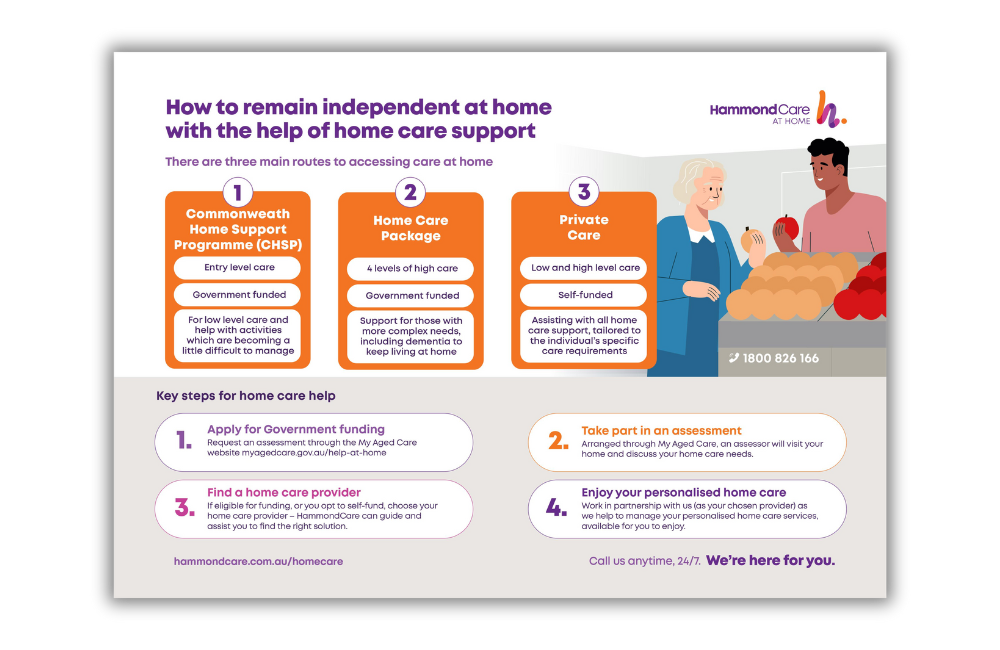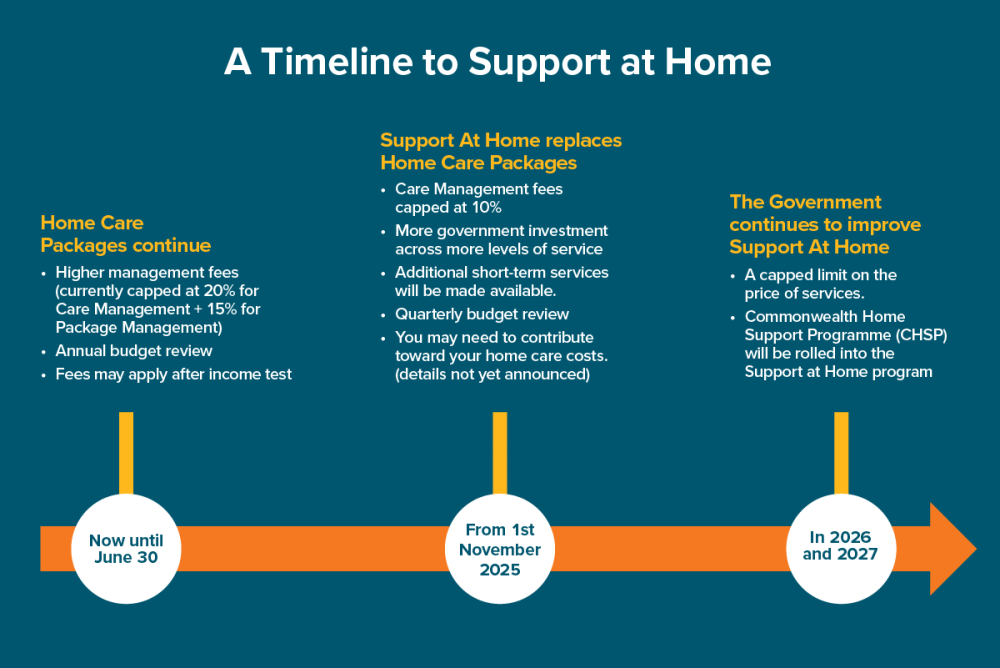Support at home plans: How to align services with your personal NDIS goals
Support at home plans: How to align services with your personal NDIS goals
Blog Article
Everything About Home Care Solutions for People With Disabilities: NDIS Registered Assistance
Home care services under the NDIS play a pivotal function in sustaining people with impairments. These solutions are made to boost day-to-day living with customized assistance, varying from personal treatment to movement assistance. Comprehending how to browse these alternatives can be intricate. This introduction discovers the different facets of NDIS home treatment, from readily available solutions to the choice of companies, highlighting crucial factors to consider for those looking for support. The trip toward encouraged treatment begins here.
Recognizing the NDIS and Its Objective
The National Impairment Insurance Coverage Scheme (NDIS) offers as a transformative framework created to provide assistance and services for people with disabilities. Established to improve the top quality of life and guarantee equitable access to important resources, the NDIS encourages participants by offering personalized strategies tailored to their distinct needs. It intends to cultivate independence, enabling people to seek their personal objectives and aspirations.Through an organized method, the NDIS allocates funding for various assistances, consisting of education and learning, employment assistance, and community participation. This all-encompassing system not only focuses on prompt care but likewise emphasizes long-lasting developmental outcomes. By advertising option and control, the NDIS urges individuals to select their preferred company, guaranteeing that treatment lines up with their preferences and worths. Inevitably, the NDIS stands for a substantial dedication to enhancing the lives of people with impairments, fostering inclusivity, and developing an extra supportive society.
Kinds Of Home Care Services Available
Different sorts of home treatment services satisfy individuals with handicaps, largely concentrating on personal care help and reprieve treatment choices. Personal care assistance offers important support with daily tasks, while reprieve treatment uses short-lived relief for key caretakers. Comprehending these solutions is essential for making certain the well-being of both individuals with impairments and their family members.
Personal Care Support
While navigating day-to-day live can present obstacles for individuals with impairments, individual care support offers vital assistance customized to their special needs. This kind of home care service includes a variety of tasks created to advertise freedom and improve high quality of life. Personal treatment assistants assist with everyday tasks such as bathing, clothing, brushing, and toileting, making sure individuals preserve personal hygiene and comfort. They might likewise assist with dish prep work, medication administration, and mobility support. By providing customized care, these specialists encourage individuals to engage more completely in their day-to-day routines and social tasks. Overall, individual treatment support plays a significant duty in promoting self-respect and autonomy for those with impairments, enabling them to flourish in their home atmosphere.

Respite Treatment Options
Reprieve care functions as an essential source for family members and caretakers of people with disabilities, providing short-lived remedy for the needs of daily caregiving. This kind of service can take numerous forms, including in-home respite care, where experienced specialists go to the home to assist with treatment tasks. Families may decide for facility-based break treatment, where people get treatment in a specialized setting, enabling caretakers to take a break. Additionally, some companies provide emergency respite solutions for unforeseen situations. These alternatives not only help ease caretaker anxiety but likewise promote the wellness of individuals with handicaps by using them new experiences and social interaction. In general, break treatment plays an essential function in sustaining both caregivers and those they look after.

Exactly How to Access NDIS Home Treatment Solutions
Accessing NDIS home treatment services entails recognizing the qualification requirements set forth by the National Impairment Insurance Policy Plan. Individuals should navigate a structured application procedure to secure the required assistance tailored to their demands. This area will certainly make clear both the eligibility requirements and the actions associated with looking for solutions.
Eligibility Standards Described
To receive NDIS home treatment solutions, individuals need to meet certain eligibility requirements that examine their needs and conditions. First, applicants must be aged in between 7 and 65 years and have a long-term and significant handicap that affects their capacity to perform everyday tasks. In addition, they need to be an Australian person, a long-term resident, or hold a Protected Special Group Visa. The NDIS needs evidence of the disability, usually via clinical assessments or reports. People must demonstrate that they call for assistance to take part in financial and social life. These standards assure that services are guided in the direction of those that truly need support, promoting independence and enhanced quality of life for people with impairments.
Application Refine Steps
Can I Pick My Own Assistance Workers With NDIS?
The private made inquiries whether they could select their own support workers under the NDIS structure. Generally, participants have the adaptability to pick support employees, fostering customized treatment that lines up with their particular needs and preferences.
What Occurs if My Requirements Change After Getting Support?
They ought to communicate these modifications to their service company if an individual's requirements change after receiving support. Modifications can be made to the treatment you can look here strategy, ensuring that the support continues to be appropriate and efficient for their situations.

Exist Restricts on Exactly How Lots Of Hours of Care I Can Get?
The specific asked about prospective limits on the number of care hours received. Usually, such limits may exist based on specific plans or moneying arrangements, stressing the value of assessing standards and agreements regularly.
Can I Use NDIS Financing for Home Alterations?
The concern of utilizing financing for home modifications develops regularly. Generally, people may use NDIS funding for needed modifications to their homes, ensuring accessibility and security, contingent upon meeting particular qualification standards and standards.
How Do I Handle Problems About My Home Treatment Providers?
To attend to issues regarding home treatment solutions, people need to first record their problems. They can communicate straight with their service supplier, looking for resolution, or intensify the problem to relevant oversight bodies if needed. Home treatment services under the NDIS play a crucial duty in supporting individuals with specials needs. Various types of home care solutions cater to people with specials needs, mostly concentrating on individual treatment aid and reprieve treatment options. home care providers melbourne. Individual treatment assistance supplies important assistance with day-to-day activities, while break care uses short-term relief for key caretakers. Families may decide for facility-based reprieve treatment, where people obtain care in a specific atmosphere, permitting caregivers to take a break. Just how can households properly manage the economic elements of home treatment solutions for individuals with disabilities?
Report this page